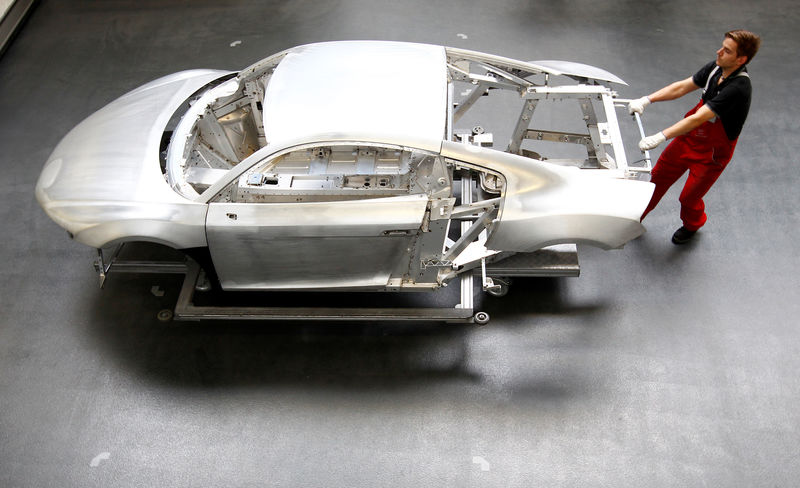By Jonathan Cable
LONDON, (Reuters) - Euro zone business growth was weaker than expected in July, hampered by a deepening contraction in manufacturing, and forward-looking indicators in surveys published on Wednesday suggest conditions will get worse next month.
That will make disappointing reading for policymakers at the European Central Bank, who are expected to signal on Thursday a bias toward cutting its already-negative deposit rate this year to try to boost growth and inflation.
Doing little to dispel those expectations, IHS Markit's Flash Composite Purchasing Managers' Index (PMI), considered a good guide to economic health, dropped to 51.5 this month from a final June reading of 52.2, missing the median expectation in a Reuters poll for 52.1 and closer to the 50 mark separating growth from contraction.
"It's a pretty gloomy picture," said Chris Williamson, chief business economist at IHS Markit.
"People are saying they expect the year ahead to be harder given rising geopolitical concerns, Brexit becoming an increasing worry and rising trade tensions."
Williamson said the PMI suggested economic growth of 0.2% - or possibly as low as 0.1% - this quarter, weaker than the 0.3%
predicted in a Reuters poll.
A PMI for the bloc's dominant service industry fell to 53.3 from June's 53.6, matching the median Reuters poll forecast.
Manufacturing activity contracted for a sixth month and at its sharpest rate since late 2012. The factory PMI fell to 46.4 from 47.6, below all forecasts in a Reuters poll which had predicted no change from June's reading.
An index measuring output, which feeds into the composite PMI, sank to 47.0 from 48.5 - its lowest reading since April
2013.
"The divergence between the two sectors is unusually wide. The question remains - how long can services continue to grow while manufacturing is in this deepening downturn," Williamson said.
Demand for manufactured goods fell at the second fastest rate in over six years and factories again turned to completing old orders to stay active. The backlogs of work index fell to a seven-year low of 43.3 from 45.5.
Services firms also suffered from weak demand and they cut back on hiring. The employment index fell to 53.5 from 54.2.
As forward-looking indicators were painting a downbeat picture, businesses across the euro zone grew less optimistic. The future output index fell to 58.5 from 59.2, its lowest since October 2014.

(jonathan.cable@thomsonreuters.com; +44 20 7542 4688)